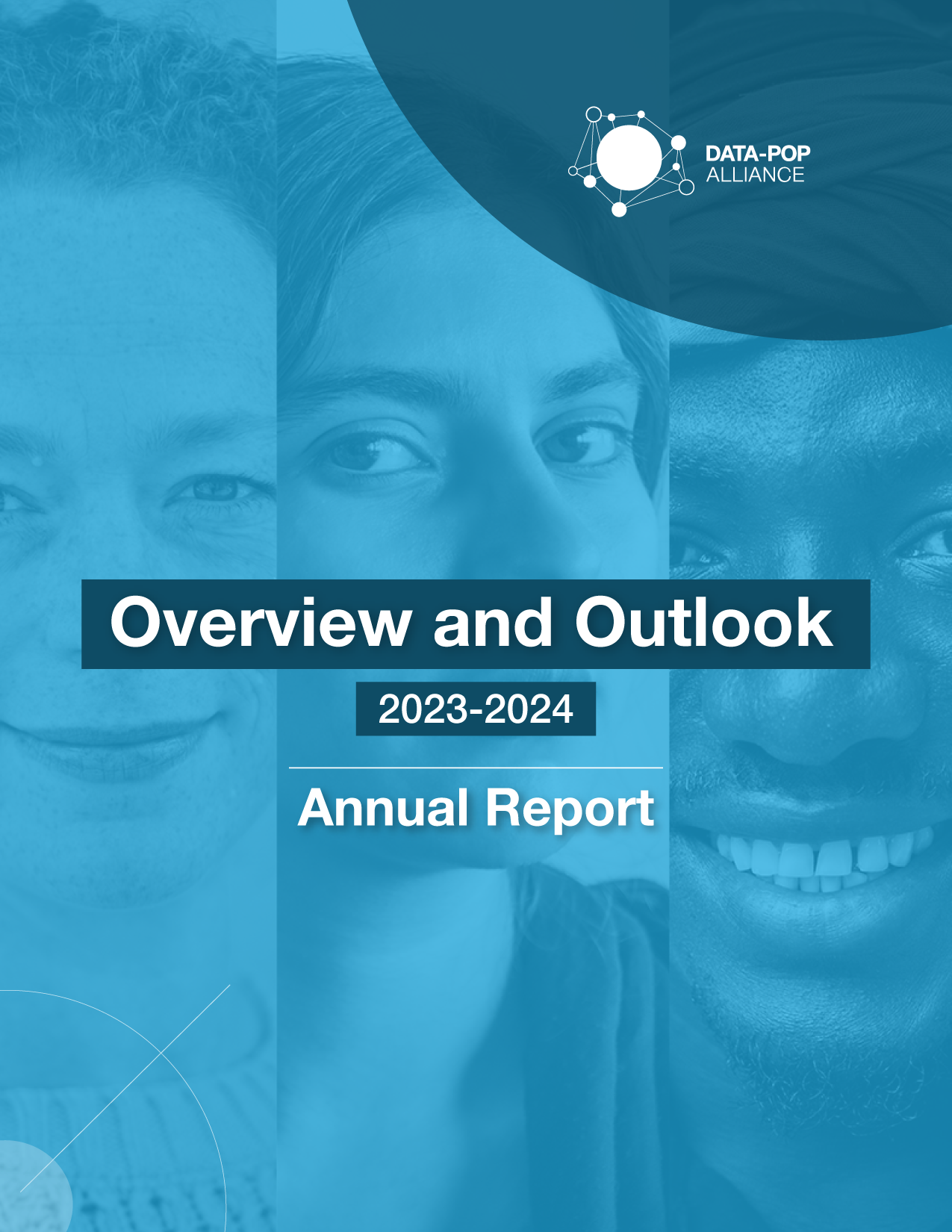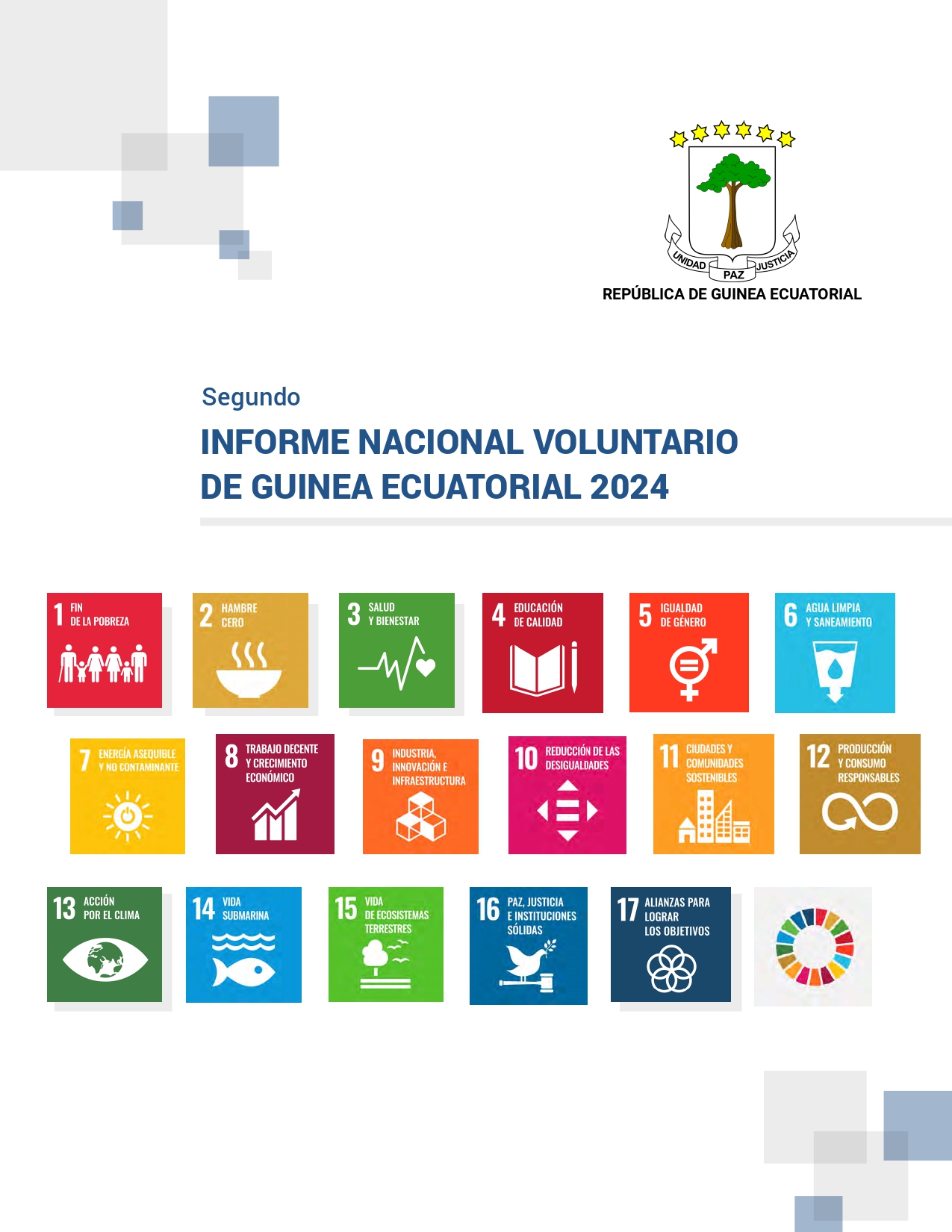DATA LITERACY SERIES (Text in Spanish / English)
En esta nueva “Serie de Alfabetismo de Datos” entrevistamos a participantes que han tomado nuestros cursos en línea. La serie continuara con la entrevista al participante del taller 3 Big Data y análisis de salud para el desarrollo sostenible: Gaby Beatriz Quispe. Este taller fue un trabajo conjunto entre AECID -a través de su Centro de Formación de la Cooperación Española en Santa Cruz de la Sierra, Bolivia- y Data-Pop Alliance. Lee sobre la experiencia de Gaby en este taller, cómo le pareció asistir a un taller virtual, y cómo planea aplicar lo aprendido en su area de trabajo como consultora y docente. Al final de la transcripción podrás igualmente encontrar el video de la entrevista.
SaraOrtiz: Primero que todo, muchas gracias por aceptar la invitación a esta entrevista. Para empezar, nos gustaría que nos puedas decir tu nombre completo y nos cuentes un poco sobre tu formación y el trabajo que realizas actualmente.
Gaby Beatriz Quispe: Mi nombre es Gaby Beatriz Quispe Ávalo. Soy licenciada en Enfermería y en Pedagogía. Tengo posgrados en epidemiología y proyectos de desarrollo. Actualmente trabajo como consultora experta especialista precisamente en trabajos con enfoque de género, salud, educación, proyectos de desarrollo humano y también como docente en una fundación que se llama La Fundación de Waal en prevención prenatal de discapacidades.
SO: Perfecto. Para entrar un poco en materia de taller, ¿te pareció útil este taller de Big Data y análisis de salud para el desarrollo sostenible?, ¿qué es lo que más resaltas del taller?
GBQ: Sí, realmente fue muy interesante. Muchas veces algunas personas tenemos temor a los números, a la estadística, al manejo de la data o incluso interpretarla o saber cómo podemos utilizarla. Al final creo que somos las personas que más provecho le sacamos a la información. El hecho de tener profesionales de tan alto nivel, compartiendo conocimiento, experiencia en la práctica del uso de la data, ha enriquecido muchísimo la mirada que hoy puedo tener sobre el manejo estadístico de la información y la toma de decisiones para mejorar precisamente los proyectos en los que trabajamos. En general ha sido bastante satisfactorio para mí.
SO: Nos alegra mucho. Y de las sesiones que viste, tal vez de las conferencias, los laboratorios, los tutoriales, ¿Hubo algo que te gustara mucho? ¿Qué fue lo que más disfrutaste? ¿Hay algo que quisieras resaltar de los materiales o las sesiones?
GBQ: En realidad todo era nuevo, así que todo me generaba mucho interés. Pero ya cuando hicimos los laboratorios y estuvimos en el Design Thinking, y empezamos a diseñar a partir de una mirada, de una idea, de poder ver cómo podemos identificar los actores, aplicar la información, proyectar el uso de esta información. Estos ha sido lo más enriquecedor, poder armar ese rompecabezas, además con ideas muy diferentes. Dentro del grupo teníamos profesionales de diferentes áreas, unas personas eran estadísticos especialistas, otras personas que no, y además de otros países. Esto hizo que se propusieran diferentes enfoques. Posiblemente desde mi experiencia yo tenía una mirada un poco más limitada y decía: bueno, esto es Design Thinking lo aplico de esta manera. Pero cuando ya veíamos la integración de información que aportan los otros profesionales, más la facilitadora del curso, podíamos ver una realidad mucho más enriquecedora. Esto me sorprendió, ya que fue posible ver una versión diferente y más rica de lo que puedes hacer con las herramientas.
SO: En comparación con los otros talleres o cursos virtuales que has tomado ¿cómo te pareció el formato de este taller, la plataforma, el hecho de que hubiera sesiones en vivo, otras pregrabados, los quices, los foros?
GBQ: A mí me pareció bastante sencillo. Se agradece mucho los recordatorios permanentes que nos enviaban, donde nos compartían los links para llevar adelante el seguimiento a nuestras acciones. A veces, a causa del trabajo, incluso los desafíos que tenemos en el día a día, es complicado agendar todo y de tener todo a la mano., Pero cuando nos daban los anuncios al día, cuando nos informaban, por ejemplo, que iba a ver una conferencia en vivo, cuando teníamos que ver grabaciones o cuando teníamos que participar en foros, todo era mucho más sencillo. Solo tenías que hacer simplemente un link, sumarte y participar de forma activa. Igualmente interactuar con los facilitadores ha sido bastante llevadero. El contenido también ha sido bastante claro. Considero que para todos los participantes en general ha sido algo muy enriquecedor el poder trabajar esta forma tan dinámica, no solo a partir de nuestros tiempos sino, también a partir de las exigencias que ponía el curso para estar presente en las conferencias y demas sesiones con los facilitadores en tiempo real.
SO: ¿Nos puedes compartir si tuviste espacios de interacción con los demás participantes, con los facilitadores? Y también ¿cómo fue la experiencia de compartir estos espacios con personas de diferentes países, trasfondos y organizaciones?
GBQ: Sí, ha sido lo más interesante. Muchos de los participantes, por ejemplo, compartían en los chat y en los foros las experiencias de su país o de su trabajo. Esto hacia que uno los leyera y comentara. Cuando lees la experiencia de otros te entra mayor curiosidad por seguir aprendiendo y decir hey, voy a investigar más sobre ese país. Entonces, además de aprender a través de los contenidos que eran maravillosos en el curso, también tenías las experiencias que se compartían en los foros y las opiniones que intercambiaban algunos. Esto enriquecía nuestros aportes y eso incluso te motiva, porque entonces tú ves la participación de otras personas que, al igual que tú, están integrando este tipo de información en su trabajo. También el poder participar con los facilitadores de manera directa, de poder en cualquier momento pedir la palabra y aportar. Esto fue muy rico porque no teníamos esa limitante o esta barrera de solo poder participar por un solo canal, sino que era bastante abierto y eso genera más confianza para estar atentos a cualquier pregunta y también para poder aportar.
"Cuando lees la experiencia de otros te entra mayor curiosidad por seguir aprendiendo y decir hey, voy a investigar más sobre ese país. Entonces, además de aprender a través de los contenidos que eran maravillosos en el curso, también tenías las experiencias que se compartían en los foros y las opiniones que intercambiaban algunos."
Gaby Beatriz Quispe
SO: Por último, quería preguntarte si recomendarías este curso a otras personas y en particular, ¿a quién crees que le podría interesar este tipo de iniciativas, este tipo de talleres para educarse o informarse un poco más sobre los temas que estamos tratando?
GBQ: Si, definitivamente lo recomendaría. Es más, lo compartí en mis redes porque creo que es una gran oportunidad para todos aquellos que estamos interesados en tener una visión mucho más amplia de lo que es el Big Data y más para quienes trabajamos en proyectos de desarrollo. Creo que el contenido es bastante amplio y bastante rico para diferentes profesionales, es multidisciplinario. Considero sobre todo que aporta muchísimo a quienes somos tomadores de decisiones para poder realmente implementar este tipo de iniciativas que vivimos a través del uso de la información. Creo que eso enriquece mucho el poder ser parte del curso y sí, lo recomendaría definitivamente. Ya tengo mi insignia digital del taller en LinkedIn, la presumo ahí. De verdad, muchas gracias porque además es un curso no me costó absolutamente nada y la verdad te llena de satisfacción, es un regalo maravilloso para quien lo pueda tomar.
SO: Nos alegra mucho y muchísimas gracias Gaby por compartir tu experiencia con nosotros. Esperamos seguir ofreciendo este tipo de talleres y que pueda impactar el trabajo de muchas más personas.
GBQ: A ustedes muchas gracias. Voy a estar atenta a las convocatorias.
Para ver el video de la entrevista haz click aquí:
English Version
In our new “SDG Data Lab” series, we interview different participants of our online courses or workshops. This edition is an interview with Workshop 3 Big Data and Health Analysis for Sustainable Development participant, Gaby Beatriz Quispe. Read about Gaby’s experience in this workshop, his opinion on taking an online workshop, and how she plans to implement what she learned in her work as a consultant and professor”
Sara Ortiz: First of all, thank you very much for accepting the invitation to this interview. To begin, we would like you to tell us your full name and tell us a little bit about your background and the work you are currently doing.
Gaby Beatriz Quispe: My name is Gaby Beatriz Quispe Avalo. I have a degree in Nursing and Pedagogy. I have postgraduate degrees in epidemiology and development projects. I am currently working as an expert consultant specializing in gender, health, education, human development projects and also as a teacher in a foundation called La Fundación de Waal in prenatal prevention of disabilities.
SO: Perfect. To get into the workshop a little bit, did you find this Big Data and health analysis for sustainable development workshop useful, what do you highlight most from the workshop?
GBQ: Yes, it was really interesting. Many times, some of us are afraid of numbers, of statistics, of handling data or even interpreting it or knowing how we can use it. In the end I think we are the people who get the most out of the information. The fact of having such high-level professionals, sharing knowledge, experience in the practice of data use, has greatly enriched the view I can have today on the statistical management of information and decision making to improve precisely the projects in which we work. In general, it has been quite satisfactory for me.
SO: We’re very pleased to hear that. And from the sessions that you saw, maybe from the lectures, the labs, the tutorials, was there anything that you really liked? What did you enjoy the most? Is there anything that you would like to highlight from the materials or the sessions?
GBQ: Actually, everything was new, so everything generated a lot of interest in me. But when we did the laboratories and were talking about Design Thinking, and we started to design from a perspective, from an idea, to be able to see how we can identify the actors, apply the information, and project the use of this information. This has been the most enriching thing, to be able to put together this puzzle, also with very different ideas. Within the group we had professionals from different areas, some people were statisticians, others were not, and also from other countries. This meant that different approaches were proposed. Possibly from my experience I had a slightly more limited view and said: well, this is Design Thinking, I apply it in this way. But when we saw the integration of information provided by the other professionals, plus the course facilitator, we could see a much more enriching reality. This surprised me, since it was possible to see a different and richer version of what you can do with the tools.
SO: Compared to other workshops or virtual courses you have taken, how did you find the format of this workshop, the platform, the fact that there were live sessions, other pre-recorded sessions, the quizzes, the forums?
GBQ: I found it quite simple. I really appreciated the permanent reminders that they sent us, where they shared with us the links to follow up on our actions. Sometimes, because of work, even the challenges we have on a daily basis, it is complicated to schedule everything and to have everything at hand, but when they gave us the daily announcements, when they informed us, for example, that there was going to be a live conference, when we had to watch recordings or when we had to participate in forums, everything was much simpler. You just had to simply link, join and actively participate. Also interacting with the facilitators has been quite easy. The content has also been quite clear. I think that for all participants in general it has been very enriching to be able to work in such a dynamic way, not only from our times but also from the demands that the course put to be present at conferences and other sessions as the facilitators in real time.
SO: Can you share with us if you had interaction spaces with the other participants, with the facilitators? And also how was the experience of sharing these spaces with people from different countries, backgrounds and organizations?
GBQ: Yes, it was the most interesting thing. Many of the participants, for example, shared in the chats and in the forums the experiences of their country or their work. This made you read and comment on them. When you read the experience of others you become more curious to continue learning and say hey, I’m going to investigate more about that country. So, in addition to learning through the content that was wonderful in the course, you also had the experiences that were shared in the forums and the opinions that some people exchanged. This enriches our contributions and that even motivates you, because then you see the participation of other people who, like you, are integrating this type of information in their work. Also, being able to participate directly with the facilitators, to be able to ask them at any time and contribute. This was very useful because we did not have this limitation or this barrier of only being able to participate through one channel, but it was quite open and that generates more confidence to be attentive to any question and also to be able to contribute.
"When you read the experience of others you become more curious to continue learning and say hey, I'm going to investigate more about that country. So, in addition to learning through the content that was wonderful in the course, you also had the experiences that were shared in the forums and the opinions that some people exchanged."
Gaby Beatriz Quispe
SO: Finally, I wanted to ask you if you would recommend this course to other people and in particular, who do you think might be interested in this type of initiative, this type of workshop to educate or inform themselves a little more about the issues we are dealing with?
GBQ: Yes, I would definitely recommend it. Moreover, I shared it in my networks because I think it is a great opportunity for all of us who are interested in having a much broader vision of what Big Data is and more for those of us who work in development projects. I think the content is quite broad and quite rich for different professionals, it is multidisciplinary. Above all, I think it contributes a lot to those of us who are decision makers to be able to really implement this type of initiative through the use of information. I think it is very enriching to be part of the course and yes, I would definitely recommend it. I already have my digital badge from the workshop on LinkedIn, I show it off there. Really, thank you very much because it is also a course that cost me absolutely nothing and it truly fills you with satisfaction, it is a wonderful gift for those who can take it.
SO: We are very happy and thank you very much Gaby for sharing your experience with us. We hope to continue offering this type of workshop and that it can impact the work of many more people.
GBQ: Thank you very much. I will keep an eye out for more information.




